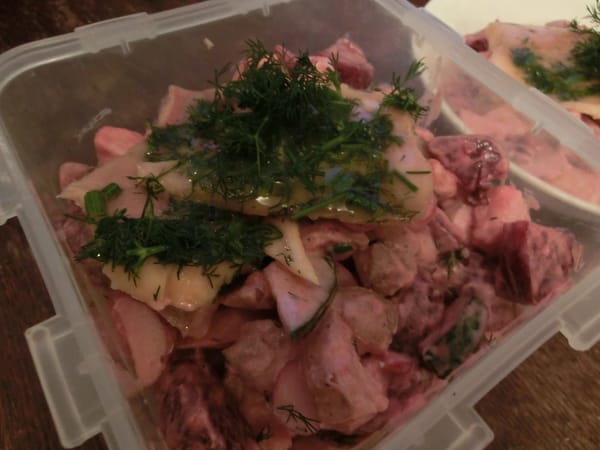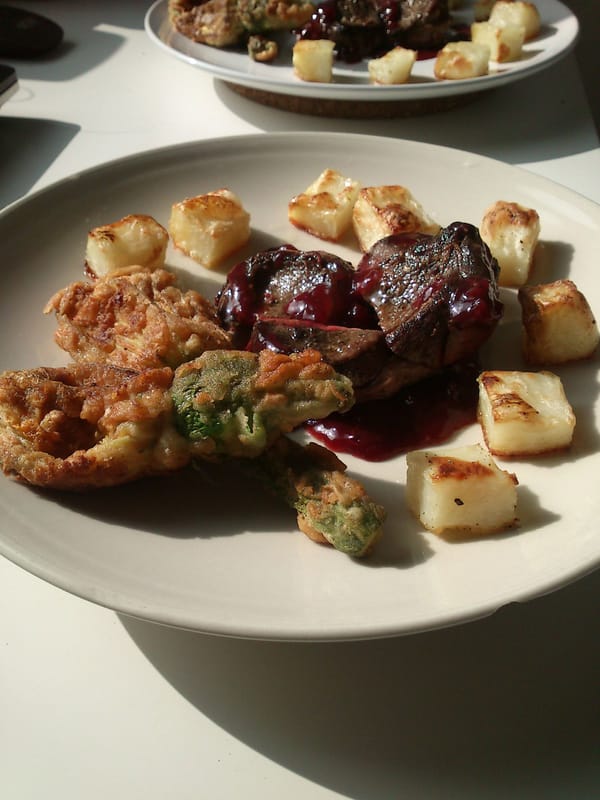The self-catering cheatsheet
Sage(!) advice on how to shop, cook and eat smart - fresher’s 15 begone!
Understandably everyone reading this article will have a different view or preference/budget when it comes to eating or food shopping. Even within Carol’s household, the boys prefer to bag everything from Sainsbury’s (everything’s in one location), whereas she doesn’t mind scouring the North End Road market and butcher’s for cheaper produce. However there are some universal rules that most savvier food shoppers/cooks will agree with, so we’ve listed them here for your convenience. Think of it as a bit of a springboard if you’re new to or still have kittens when it comes to self-catering!
PLANNING AHEAD Unless you’ve got immense supermarket-fu, get into the habit of making a shopping list and corresponding food budget AND stick to it. It’s very easy to go over your budget when you see temptables masked as “oh-actually-I-want-some-of-these” items. Some weeks you’ll need to stock up on some dried/tinned goods (rice, pasta) and that’ll mean you spend a bit more in those weeks during the month, but that’s okay. Adjust the budget for future weeks accordingly...plus pasta isn’t a heavy expenditure. We recommend doing a food shop weekly and with at least one shopping buddy. BOGOF/BOGOHP (Buy One Get One Free/Half Price) deals are great; but sometimes if they’re on fresh produce you may not use it all in time so having a food shopping buddy means you get to enjoy the deals but without as much outlay. It works for online food shopping as well get a few more buddies, split the delivery cost or try and hit free-delivery spend amounts. Whatever you do, don’t head off shopping on an empty stomach. Many of us can testify that you’ll end up spending more...
SAVVY CHOICES You don’t always have to be a food/label snob. Sometimes own-brand/value-brand stuff is on par or perhaps better than the name-brand stuff you find in supermarkets (Basics digestives and smoked salmon trimmings are Felix Food favourites). However there are times where you do get what you pay for, so you might have to have a try for yourself. Do keep an open mind though! Sometimes a simple swap in the cut of meat can save you pounds. We opt for chicken thigh/drumstick meat instead of breast meat sometimes chopped up, it’s more sumptuous in stews and has a richer flavour. For protein fiends with little to no time, eggs and fish are a great and cheaper way to keep going. Buy seasonal fruit and veg. We’re sometimes guilty of violating this as a certain editor is a sucker for clementines whatever month of the year we’re in, but it’s a lot better to stick to the produce that comes with the seasons. Leeks and potatoes for Autumn/Winter, light summery veg for the warmer months... your wallet will thank you, and no one wants to eat a dense casserole in summer so your stomach will too! Make it a point to try something new in terms of fruit or veg (or maybe even cuts of meat) once a week. It’s a great way to broaden your horizons and prevent you from being stuck in a food rut. You never know, you may end up liking it, Carol found out that way with beetroot! The internet is a great place to find out what to do with novel (to you) foods/ingredients.
MAKING THE MOST OF IT Cook two portions in a go, don’t bother with just one, as you’ll be making and washing up the same amount of mess. Keep one portion for lunch the next day, or share with a mate (and get them to cook the next day!) If you’re short on dosh, all-in-one meals like soups, one-pan dishes or stir-fries are great to save on the cost. There’s still a way to eat cheap and healthy without having to resort to pot noodle (okay, we’ve made pot noodle gourmet before in a previous issue but you get our drift!). Don’t chuck out sad-looking fruit, give it a new lease of life by blitzing it up for smoothies/yogurt sauce, or maybe use it in a pudding/cake (banana bread, we’re looking at you). To keep it fresh for longer though, we recommend storing bananas away from other fruit, their gases make fruit go off faster. Similarly for older veg, they tend to make great soup or sauce-bulking ingredients. Or just cook them for longer in a winter stew. Invest in a decent grater, for cheese, it boosts flavor and aerates it a bit so you’ll use less and save money. A good grater helps create interest in dishes as well: grated carrot and cucumber in a tossed salad, anyone? Measure out pasta/spaghetti to cut down on waste. As a handy guideline, a standard mugful of pasta is enough for one person. For spaghetti, we love the spaghetti measure from Joseph Joseph (check out John Lewis) that can be adjusted to measure out portions 1-4 servings. It’s 8 quid, but you’ll recoup the cost in terms of spaghetti (and other sauce) not wasted. And of course, the most basic time-saving tip (for you chronic on-the-rush freshers)... food cooks faster if you chop it up into smaller bits instead of larger chunks (e.g. carrots and potatoes for roasting/boiling/stir-frying). No one’s going to be judging you on whether you’ve presented your veg in cubes or matchsticks, so unless you’re cooking for Gordon Ramsay it really doesn’t matter.










